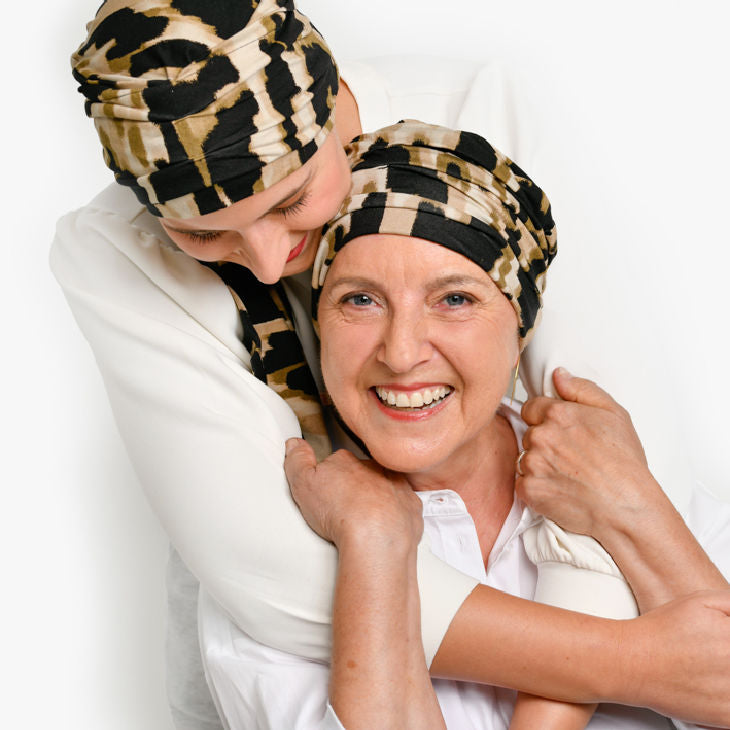Many people find it harder to get a good night’s sleep during treatment. It’s understandable — your body and mind are going through a lot. Still, with a few simple habits, you can create moments of calm that make it easier to drift off and rest.
Your bedroom: a peaceful cocoon
Try to make your bedroom a true sanctuary. Keep it dark, quiet, and slightly cool — around 18–20 °C feels best for most people. If noise or light bother you, a sleep mask, earplugs, or soft nature sounds can help.
Also be mindful of scents: strong perfumes or cleaning products can trigger nausea if your sense of smell is heightened during chemo. Neutral or fresh scents are much kinder.

And most importantly, keep your bed for rest. Use it to sleep or relax, but avoid spending long periods there during the day if you can. If you need a nap, find another cozy spot — a chair, a sofa, or even another bed if that’s possible.
The evening wind-down
Your body loves routine. A small bedtime ritual — a warm shower, a bit of body lotion, a few gentle yoga poses — signals it’s time to slow down.
Put your phone and tablet away well before bedtime: blue light disrupts melatonin, the sleep hormone. Choose something soothing instead: a paper book, calming music, or simply a quiet cup of tea.

Breathe out the tension
When your mind keeps racing, try this simple breathing exercise: breathe in for 4 counts, hold for 2, and breathe out for 6. Repeat ten times. It’s a small thing that truly helps you let go.
Keep your head warm
At night, your head can lose warmth quickly, and that chill may wake you. A soft, seamless sleep cap can make a big difference — even in summer. Choose one without elastic or rough stitching that could irritate sensitive skin. (Our extra-soft Pippa sleep caps are designed exactly for that comfort!)

Let your thoughts rest too
A small notebook by your bed can help clear your mind. Write down what’s worrying you or what you want to remember for tomorrow. Once it’s on paper, your brain can finally relax. You might also jot down a few things you’re grateful for — a simple “thank-you journal” can lift your spirits.
Daytime habits matter too
Better nights start with gentle days. Try to get outside for a few minutes of daylight — even ten minutes helps balance your body’s natural rhythm. A short walk or some easy stretching also promotes better sleep.
Watch your caffeine intake after lunch, and skip heavy meals or alcohol in the evening. A cup of chamomile or lemon balm tea, or a glass of warm milk, can be wonderfully soothing.
Talk about it
Sleep problems during cancer treatment are often emotional too. Fear, worry, or a sense of losing control all play a part. You don’t have to carry that alone. Talking with a psychologist, oncology coach, or support group can bring relief. Sometimes, being heard is the first step to real rest.












Leave a comment
All comments are moderated before being published.
This site is protected by hCaptcha and the hCaptcha Privacy Policy and Terms of Service apply.